默认值会阻止 select 被发送到频道
各位小伙伴们,大家好呀!看看今天我又给各位带来了什么文章?本文标题是《默认值会阻止 select 被发送到频道》,很明显是关于Golang的文章哈哈哈,其中内容主要会涉及到等等,如果能帮到你,觉得很不错的话,欢迎各位多多点评和分享!
我正在开发一个个人项目,该项目将在带有一些传感器的 raspberry pi 上运行。
从传感器读取数据的函数和处理套接字连接的函数在不同的 goroutine 中执行,因此,为了在从传感器读取数据时在套接字上发送数据,我创建了一个 chan []byte main 函数并将其传递给 goroutine。
我的问题出在这里:如果我连续进行多次写入,则只有第一个数据到达客户端,而其他数据则不会。但是如果我在发送函数中添加一点 time.sleep ,所有数据都会正确到达客户端。
无论如何,这是这个小程序的简化版本:
package main
import (
"net"
"os"
"sync"
"time"
)
const socketName string = "./test_socket"
// create to the socket and launch the accept client routine
func launchServerUDS(ch chan []byte) {
if err := os.RemoveAll(socketName); err != nil {
return
}
l, err := net.Listen("unix", socketName)
if err != nil {
return
}
go acceptConnectionRoutine(l, ch)
}
// accept incoming connection on the socket and
// 1) launch the routine to handle commands from the client
// 2) launch the routine to send data when the server reads from the sensors
func acceptConnectionRoutine(l net.Listener, ch chan []byte) {
defer l.Close()
for {
conn, err := l.Accept()
if err != nil {
return
}
go commandsHandlerRoutine(conn, ch)
go autoSendRoutine(conn, ch)
}
}
// routine that sends data to the client
func autoSendRoutine(c net.Conn, ch chan []byte) {
for {
data := <-ch
if string(data) == "exit" {
return
}
c.Write(data)
}
}
// handle client connection and calls functions to execute commands
func commandsHandlerRoutine(c net.Conn, ch chan []byte) {
for {
buf := make([]byte, 1024)
n, err := c.Read(buf)
if err != nil {
ch <- []byte("exit")
break
}
// now, for sake of simplicity , only echo commands back to the client
_, err = c.Write(buf[:n])
if err != nil {
ch <- []byte("exit")
break
}
}
}
// write on the channel to the autosend routine so the data are written on the socket
func sendDataToClient(data []byte, ch chan []byte) {
select {
case ch <- data:
// if i put a little sleep here, no problems
// i i remove the sleep, only data1 is sent to the client
// time.Sleep(1 * time.Millisecond)
default:
}
}
func dummyReadDataRoutine(ch chan []byte) {
for {
// read data from the sensors every 5 seconds
time.Sleep(5 * time.Second)
// read first data and send it
sendDataToClient([]byte("dummy data1\n"), ch)
// read second data and send it
sendDataToClient([]byte("dummy data2\n"), ch)
// read third data and send it
sendDataToClient([]byte("dummy data3\n"), ch)
}
}
func main() {
ch := make(chan []byte)
wg := sync.WaitGroup{}
wg.Add(2)
go dummyReadDataRoutine(ch)
go launchServerUDS(ch)
wg.Wait()
}
我认为使用睡眠来同步写入是不正确的。如何解决这个问题,同时保持函数在不同的 goroutine 上运行。
解决方案
主要问题出在函数中:
func senddatatoclient(data []byte, ch chan []byte) {
select {
case ch <- data:
// if i put a little sleep here, no problems
// if i remove the sleep, only data1 is sent to the client
// time.sleep(1 * time.millisecond)
default:
}
如果调用函数时通道 ch 尚未准备好,则将采用 default 情况,并且 data 将永远不会被发送。在这种情况下,您应该删除该功能并直接发送到频道。
缓冲通道与当前的问题正交,并且应该出于与缓冲 io 类似的原因来完成,即为无法立即进行的写入提供“缓冲区”。如果代码在没有缓冲区的情况下无法进行,则添加缓冲区只会延迟可能的死锁。
您也不需要此处的 exit 哨兵值,因为您可以在通道上进行范围调整并在完成后将其关闭。然而,这仍然忽略写入错误,但这又需要一些重新设计。
for data := range ch {
c.write(data)
}
您还应该小心地通过通道传递切片,因为很容易丢失对哪个逻辑进程拥有所有权并将修改后备数组的跟踪。从给出的信息来看,我不能说通过通道传递读+写数据是否可以改善架构,但这不是您在大多数 go 网络代码中发现的模式。
jimb 给出了很好的解释,所以我认为他的答案更好。
我已在此答案中包含了我的部分解决方案。
我认为我的代码是清晰和简化的,但正如吉姆所说,我可以做得更简单和更清晰。我将旧代码发布出来,以便人们可以更好地理解如何发布更简单的代码,而不是像我一样搞得一团糟。
正如chmike所说,我的问题并不像我想象的那样与套接字有关,而仅与通道有关。在无缓冲通道上写入是问题之一。将无缓冲通道更改为缓冲通道后,问题得到解决。无论如何,这段代码不是“好代码”,可以按照 jimb 在他的答案中写的原则进行改进。
这是新代码:
package main
import (
"net"
"os"
"sync"
"time"
)
const socketName string = "./test_socket"
// create the socket and accept clients connections
func launchServerUDS(ch chan []byte, wg *sync.WaitGroup) {
defer wg.Done()
if err := os.RemoveAll(socketName); err != nil {
return
}
l, err := net.Listen("unix", socketName)
if err != nil {
return
}
defer l.Close()
for {
conn, err := l.Accept()
if err != nil {
return
}
// this goroutine are launched when a client is connected
// routine that listen and echo commands
go commandsHandlerRoutine(conn, ch)
// routine to send data read from the sensors to the client
go autoSendRoutine(conn, ch)
}
}
// routine that sends data to the client
func autoSendRoutine(c net.Conn, ch chan []byte) {
for {
data := <-ch
if string(data) == "exit" {
return
}
c.Write(data)
}
}
// handle commands received from the client
func commandsHandlerRoutine(c net.Conn, ch chan []byte) {
for {
buf := make([]byte, 1024)
n, err := c.Read(buf)
if err != nil {
// if i can't read send an exit command to autoSendRoutine and exit
ch <- []byte("exit")
break
}
// now, for sake of simplicity , only echo commands back to the client
_, err = c.Write(buf[:n])
if err != nil {
// if i can't write back send an exit command to autoSendRoutine and exit
ch <- []byte("exit")
break
}
}
}
// this goroutine reads from the sensors and write to the channel , so data are sent
// to the client if a client is connected
func dummyReadDataRoutine(ch chan []byte, wg *sync.WaitGroup) {
x := 0
for x < 100 {
// read data from the sensors every 5 seconds
time.Sleep(1 * time.Second)
// read first data and send it
ch <- []byte("data1\n")
// read second data and send it
ch <- []byte("data2\n")
// read third data and send it
ch <- []byte("data3\n")
x++
}
wg.Done()
}
func main() {
// create a BUFFERED CHANNEL
ch := make(chan []byte, 1)
wg := sync.WaitGroup{}
wg.Add(2)
// launch the goruotines that handle the socket connections
// and read data from the sensors
go dummyReadDataRoutine(ch, &wg)
go launchServerUDS(ch, &wg)
wg.Wait()
}以上就是本文的全部内容了,是否有顺利帮助你解决问题?若是能给你带来学习上的帮助,请大家多多支持golang学习网!更多关于Golang的相关知识,也可关注golang学习网公众号。
 使用 Golang 的 select 语句与通道和等待组共同工作
使用 Golang 的 select 语句与通道和等待组共同工作
- 上一篇
- 使用 Golang 的 select 语句与通道和等待组共同工作

- 下一篇
- Go 语言中实现双向映射的方法
-

- Golang · Go问答 | 1年前 |
- 在读取缓冲通道中的内容之前退出
- 139浏览 收藏
-
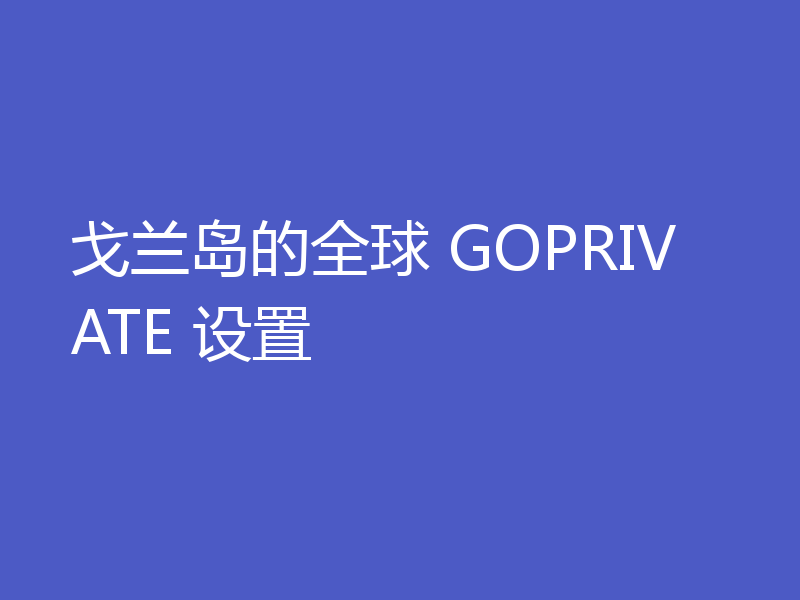
- Golang · Go问答 | 1年前 |
- 戈兰岛的全球 GOPRIVATE 设置
- 204浏览 收藏
-

- Golang · Go问答 | 1年前 |
- 如何将结构作为参数传递给 xml-rpc
- 325浏览 收藏
-

- Golang · Go问答 | 1年前 |
- 如何用golang获得小数点以下两位长度?
- 478浏览 收藏
-
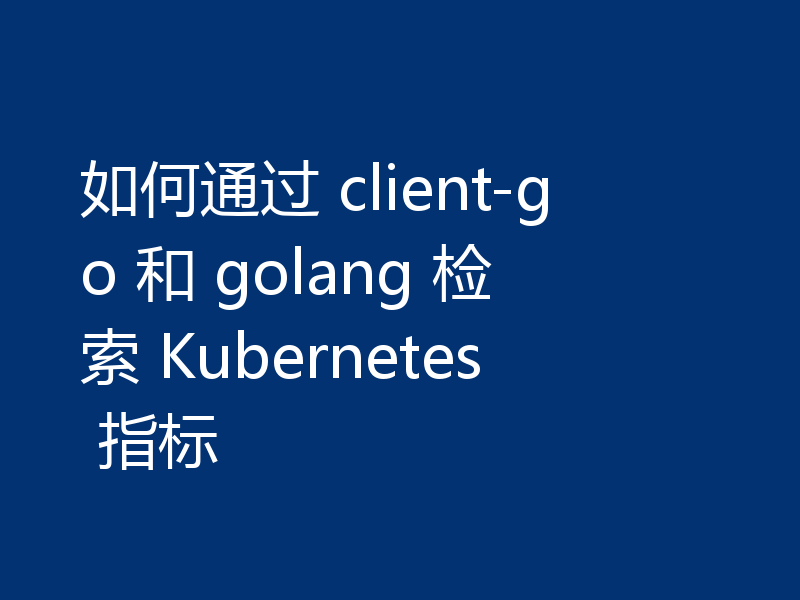
- Golang · Go问答 | 1年前 |
- 如何通过 client-go 和 golang 检索 Kubernetes 指标
- 486浏览 收藏
-

- Golang · Go问答 | 1年前 |
- 将多个“参数”映射到单个可变参数的习惯用法
- 439浏览 收藏
-
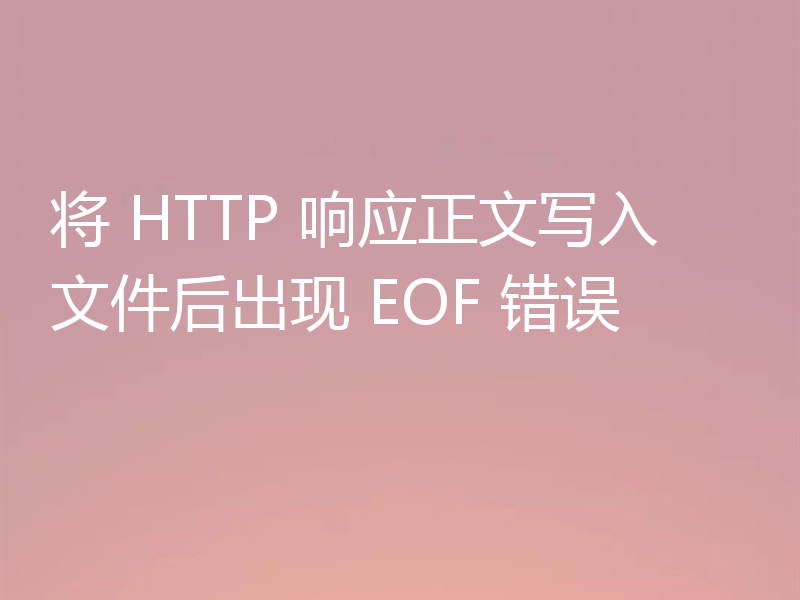
- Golang · Go问答 | 1年前 |
- 将 HTTP 响应正文写入文件后出现 EOF 错误
- 357浏览 收藏
-

- Golang · Go问答 | 1年前 |
- 结构中映射的匿名列表的“复合文字中缺少类型”
- 352浏览 收藏
-

- Golang · Go问答 | 1年前 |
- NATS Jetstream 的性能
- 101浏览 收藏
-

- Golang · Go问答 | 1年前 |
- 如何将复杂的字符串输入转换为mapstring?
- 440浏览 收藏
-
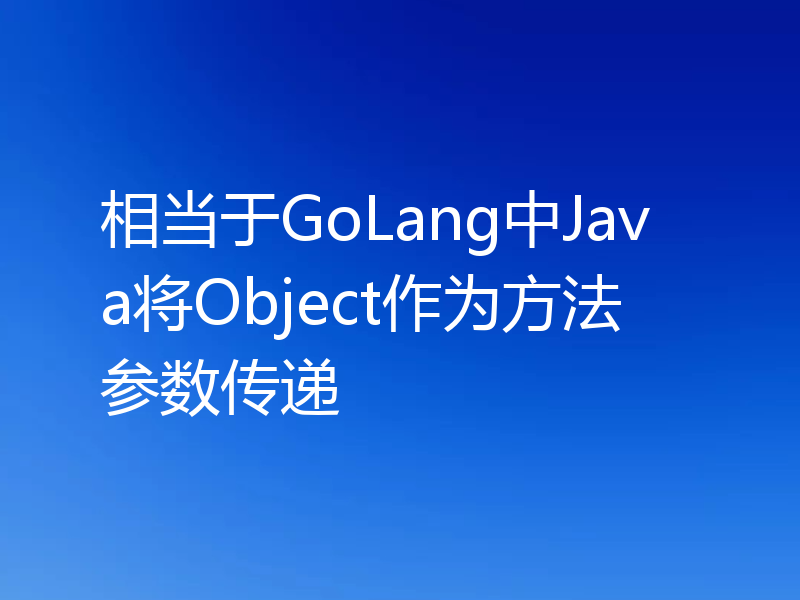
- Golang · Go问答 | 1年前 |
- 相当于GoLang中Java将Object作为方法参数传递
- 212浏览 收藏
-
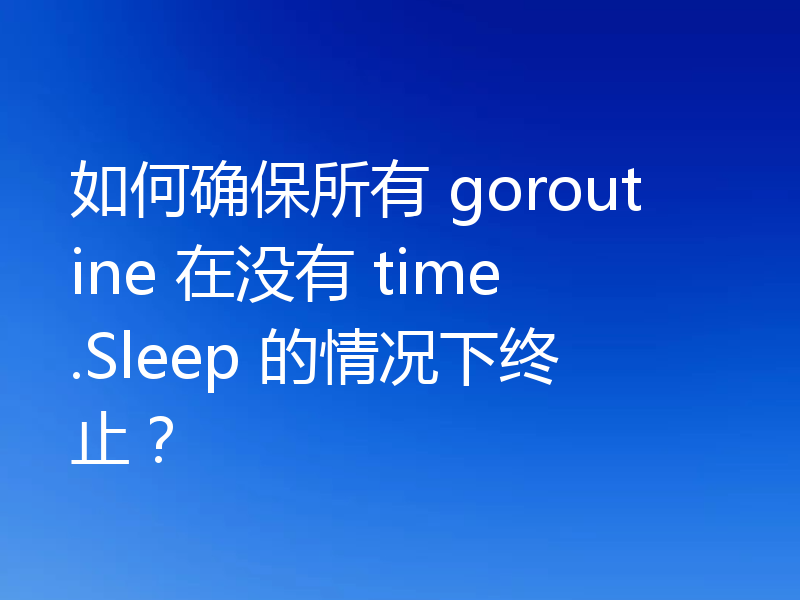
- Golang · Go问答 | 1年前 |
- 如何确保所有 goroutine 在没有 time.Sleep 的情况下终止?
- 143浏览 收藏
-

- 前端进阶之JavaScript设计模式
- 设计模式是开发人员在软件开发过程中面临一般问题时的解决方案,代表了最佳的实践。本课程的主打内容包括JS常见设计模式以及具体应用场景,打造一站式知识长龙服务,适合有JS基础的同学学习。
- 543次学习
-

- GO语言核心编程课程
- 本课程采用真实案例,全面具体可落地,从理论到实践,一步一步将GO核心编程技术、编程思想、底层实现融会贯通,使学习者贴近时代脉搏,做IT互联网时代的弄潮儿。
- 516次学习
-

- 简单聊聊mysql8与网络通信
- 如有问题加微信:Le-studyg;在课程中,我们将首先介绍MySQL8的新特性,包括性能优化、安全增强、新数据类型等,帮助学生快速熟悉MySQL8的最新功能。接着,我们将深入解析MySQL的网络通信机制,包括协议、连接管理、数据传输等,让
- 500次学习
-

- JavaScript正则表达式基础与实战
- 在任何一门编程语言中,正则表达式,都是一项重要的知识,它提供了高效的字符串匹配与捕获机制,可以极大的简化程序设计。
- 487次学习
-

- 从零制作响应式网站—Grid布局
- 本系列教程将展示从零制作一个假想的网络科技公司官网,分为导航,轮播,关于我们,成功案例,服务流程,团队介绍,数据部分,公司动态,底部信息等内容区块。网站整体采用CSSGrid布局,支持响应式,有流畅过渡和展现动画。
- 485次学习
-

- ChatExcel酷表
- ChatExcel酷表是由北京大学团队打造的Excel聊天机器人,用自然语言操控表格,简化数据处理,告别繁琐操作,提升工作效率!适用于学生、上班族及政府人员。
- 3701次使用
-

- Any绘本
- 探索Any绘本(anypicturebook.com/zh),一款开源免费的AI绘本创作工具,基于Google Gemini与Flux AI模型,让您轻松创作个性化绘本。适用于家庭、教育、创作等多种场景,零门槛,高自由度,技术透明,本地可控。
- 3969次使用
-

- 可赞AI
- 可赞AI,AI驱动的办公可视化智能工具,助您轻松实现文本与可视化元素高效转化。无论是智能文档生成、多格式文本解析,还是一键生成专业图表、脑图、知识卡片,可赞AI都能让信息处理更清晰高效。覆盖数据汇报、会议纪要、内容营销等全场景,大幅提升办公效率,降低专业门槛,是您提升工作效率的得力助手。
- 3910次使用
-

- 星月写作
- 星月写作是国内首款聚焦中文网络小说创作的AI辅助工具,解决网文作者从构思到变现的全流程痛点。AI扫榜、专属模板、全链路适配,助力新人快速上手,资深作者效率倍增。
- 5082次使用
-

- MagicLight
- MagicLight.ai是全球首款叙事驱动型AI动画视频创作平台,专注于解决从故事想法到完整动画的全流程痛点。它通过自研AI模型,保障角色、风格、场景高度一致性,让零动画经验者也能高效产出专业级叙事内容。广泛适用于独立创作者、动画工作室、教育机构及企业营销,助您轻松实现创意落地与商业化。
- 4282次使用
-
- GoLand调式动态执行代码
- 2023-01-13 502浏览
-
- 用Nginx反向代理部署go写的网站。
- 2023-01-17 502浏览
-
- Golang取得代码运行时间的问题
- 2023-02-24 501浏览
-
- 请问 go 代码如何实现在代码改动后不需要Ctrl+c,然后重新 go run *.go 文件?
- 2023-01-08 501浏览
-
- 如何从同一个 io.Reader 读取多次
- 2023-04-11 501浏览



